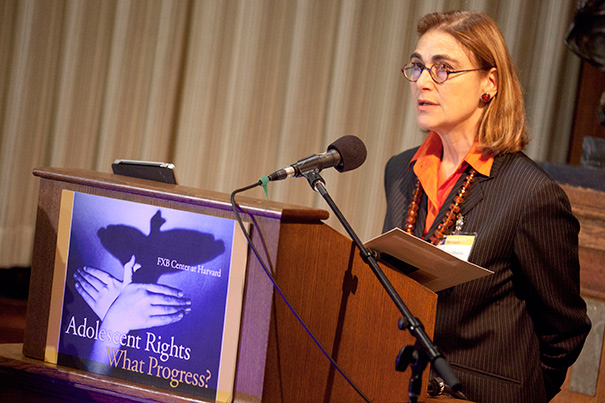Nation & World
-

Unfuzzy math: U.S. needs to do better
Ed School expert has some ideas, including a rethink of homework bans, after ‘discouraging’ results

-

What to expect when you’re elected
Bipartisan group of lawmakers gets to know Washington by way of the IOP
-

Defining and confronting campus antisemitism
Scholars in Jewish Studies say education, conversation can bolster efforts to defeat hate
-
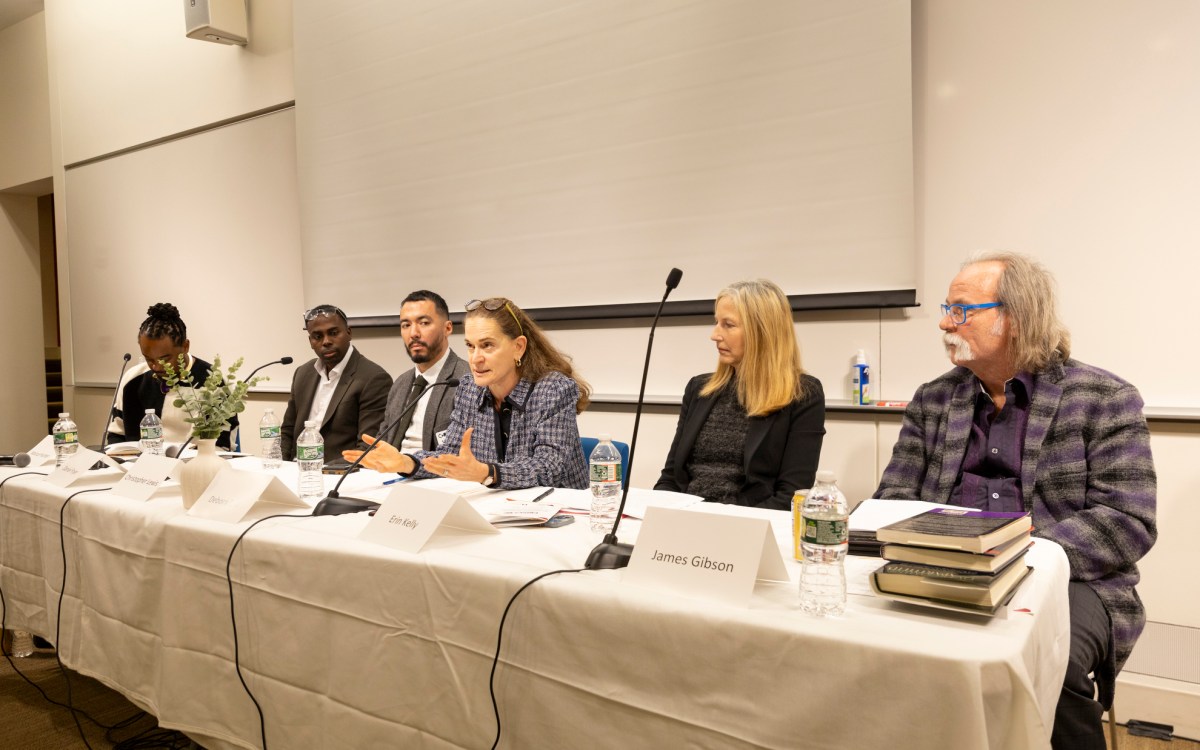
Are reparations the answer?
Harvard symposium explores case for restitution to Black Americans legally, economically, ethically
-

Exact cause of Notre-Dame fire still unclear. But disaster perhaps could’ve been avoided.
Leadership expert says foreseeable factors all contributed to complex failure. Consistent focus needed on best practices, rules, procedures.

-
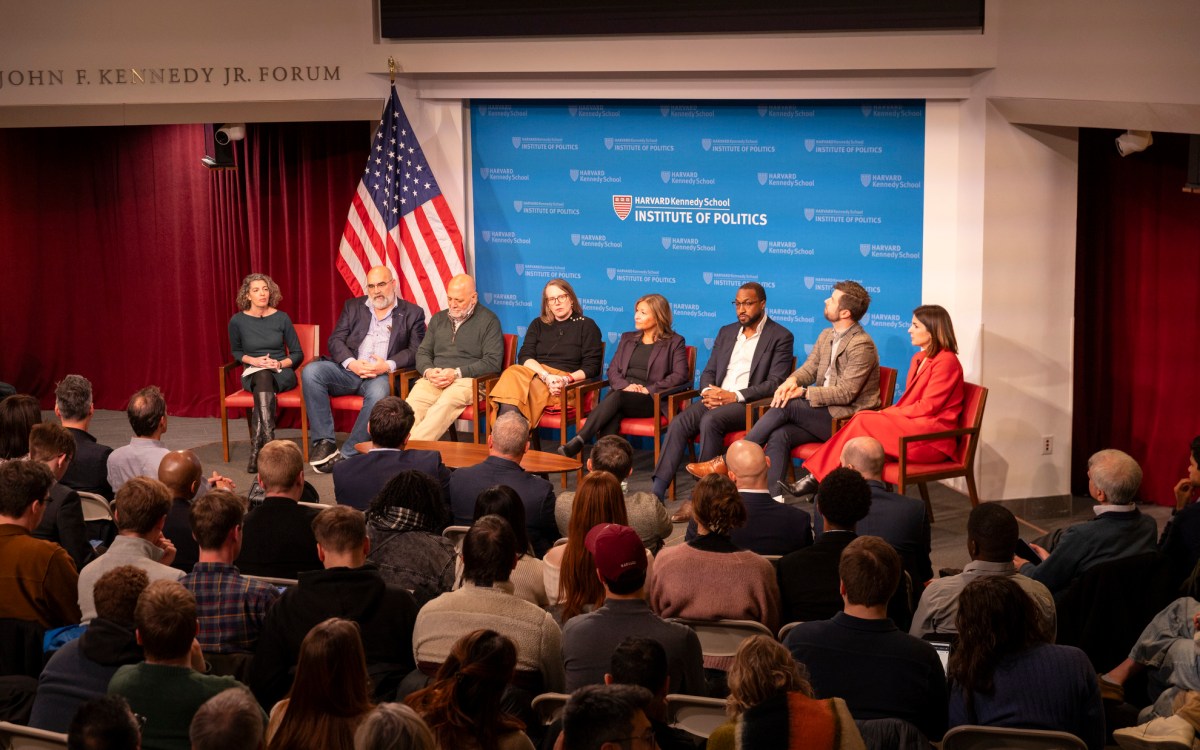
How the presidency was won, lost
Top campaign leaders from both sides talk about what worked, didn’t at Kennedy School postmortem
-
War-weary spirits
An exhibit at Harvard Divinity School’s Andover-Harvard Theological Library and accompanying digital archive offer an intimate look at religious dimensions to the Civil War.
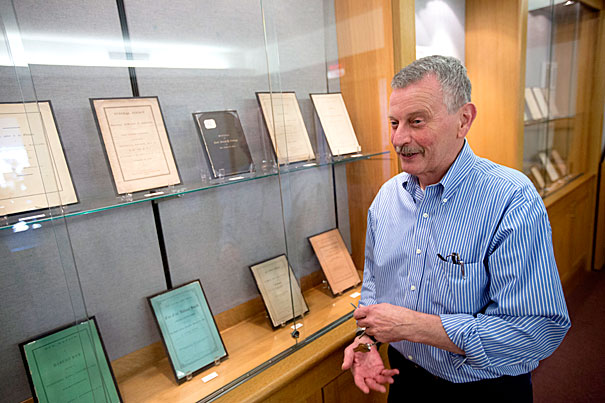
-
ChinaX has global ambitions
New HarvardX course will examine China’s history, politics, philosophy, and hopes to draw both local students and others overseas.
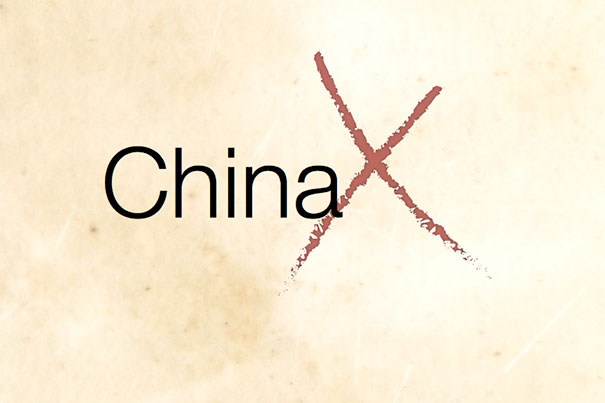
-
When 3+1 is more than 4
Harvard Business School researchers find that to motivate workers more effectively, present higher pay as a gift.
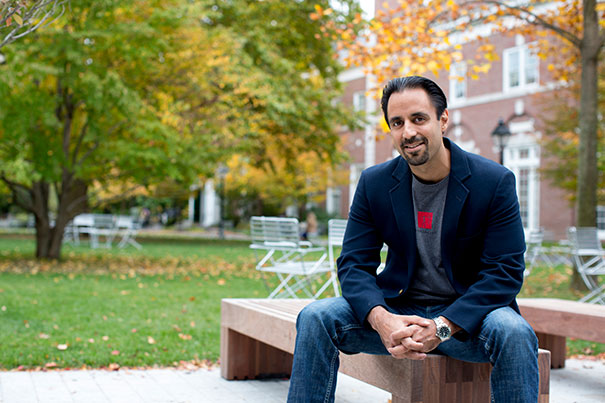
-
Don’t look now: It’s election ’16
Panelists at the Harvard Kennedy School take an early look at the likely field of candidates in both parties for the 2016 presidential election.
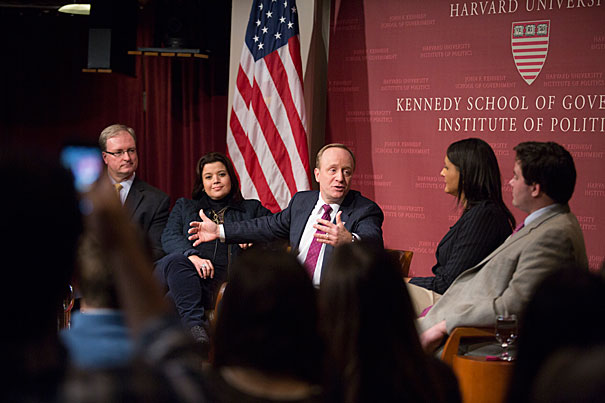
-
When things changed for women
During a Radcliffe address, New York Times columnist Gail Collins offered her perspective on why how and why the rights and expectations of American women changed so dramatically between 1960 and today.

-
In Chile, a head start
A Harvard-backed initiative in Chile aims to reduce economic disparity through an early education health initiative supported by the Harvard Graduate School of Education and Harvard Medical School.
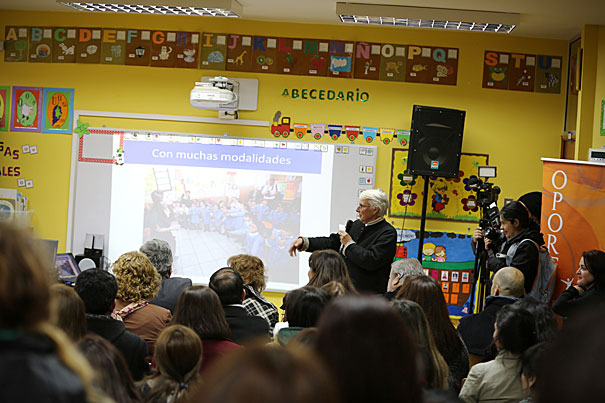
-
Spoils of war
While global pressure to curb the use of children in combat has worked in some places, the persistent challenge for international organizations is to find ways to integrate damaged former soldiers back into the communities they were led to violate and abandon, Harvard panelists say.
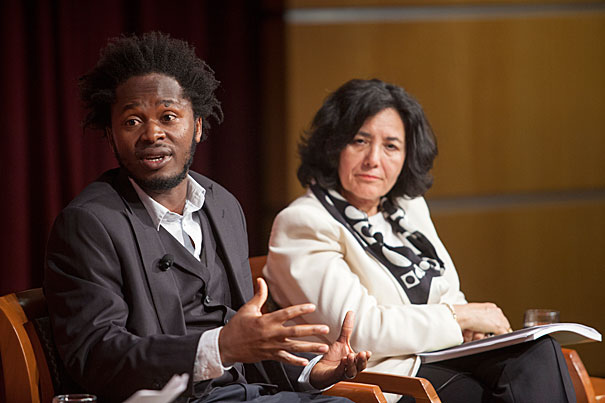
-
The poetry of water
Harvard anthropologist Steven Caton made his name studying tribal poetry in Yemen three decades ago. But it was memories of a tribal war that drew him back to that nation in 2001, and the scarcity of water he discovered there launched him into a new avenue of investigation.
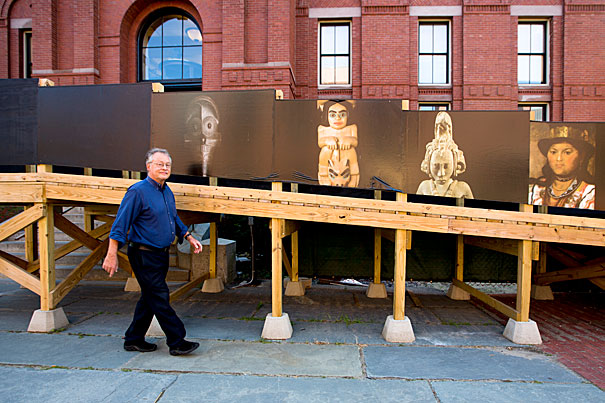
-
Brick by brick
Helping part of coastal Chile to recover completely and prosper following the deadly 2010 earthquake and tsunami is the guiding ethos of Recupera Chile, an initiative based at Harvard’s David Rockefeller Center for Latin American Studies that involves half a dozen Harvard Schools.
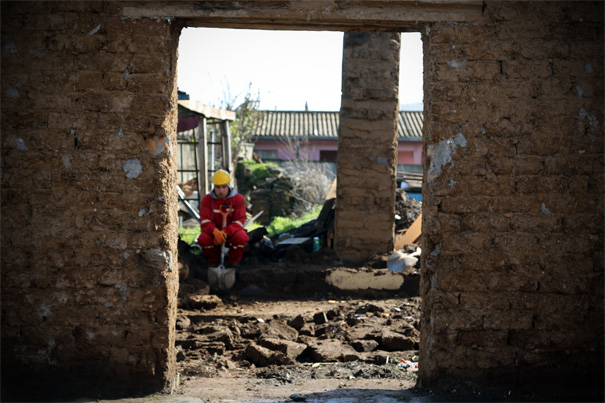
-
A farewell to arms
Professor Matthew Meselson, a biologist and expert on chemical and biological weapons, talks about the surprise winner of the 2013 Nobel Peace Prize.
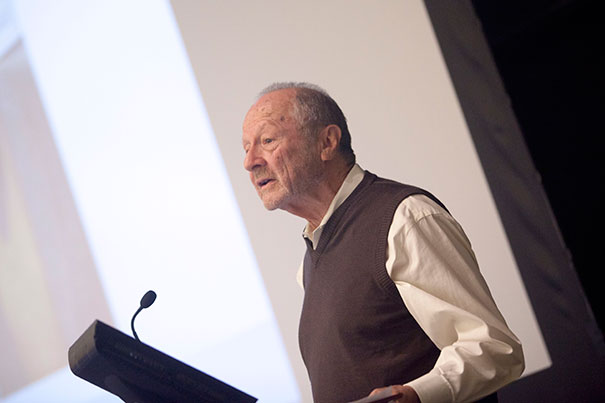
-
Lessons in an unappealing law
Harvard Law Professor Noah Feldman ran a Socratic master class to dig beneath the 1927 Supreme Court decision upholding forced sterilization of “mental defectives.”
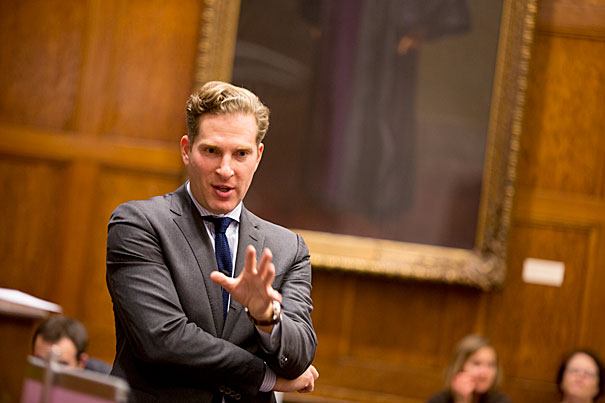
-
New avenues in education
Building on the University’s commitment to innovation and collaboration, the Graduate School of Education held an Askwith Forum Tuesday examining innovations in learning.
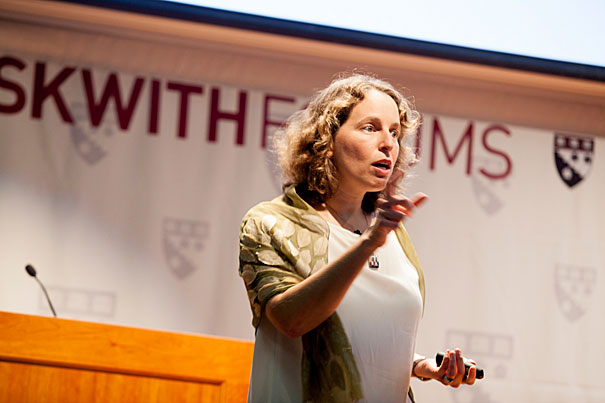
-
Women on a mission
In Bosnia-Herzegovina, where memories of war are still fresh, mothers and grandmothers are working at the grassroots to build a peaceful future for their country, a scholar who is highlighting their stories in an upcoming book said in a talk at the Minda de Gunzburg Center for European Studies.
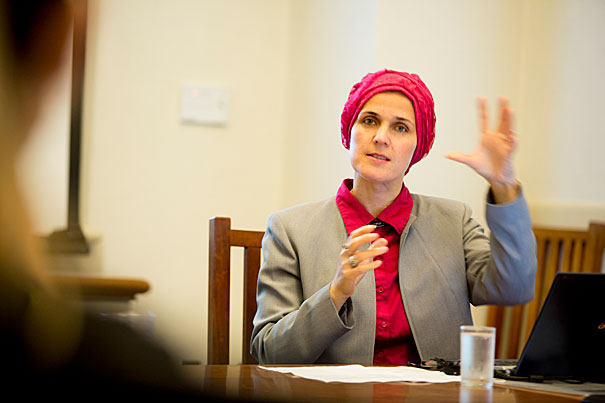
-
The case for blockbusters
Harvard Business School Professor Anita Elberse talks about how the entertainment industry is relentlessly pursuing success through what she calls a blockbuster strategy.
-
Seeds of a shutdown
Panelists in an Institute of Politics forum on the federal government shutdown included Linda Bilmes of the Kennedy School and Joe Klein of Time magazine.
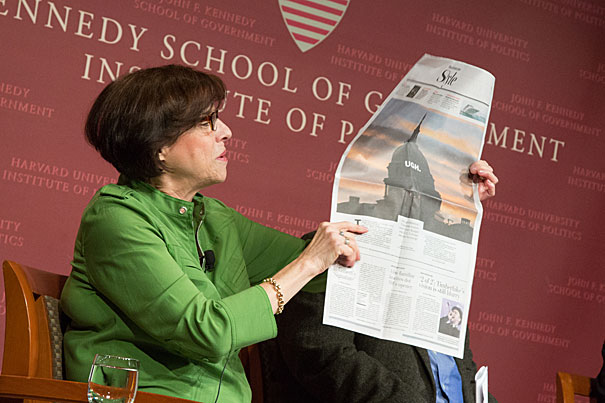
-
On the frontiers of learning
The president of edX, Anant Agarwal, sees the transformative possibilities of online education as also reshaping the way educators think about teaching and learning.
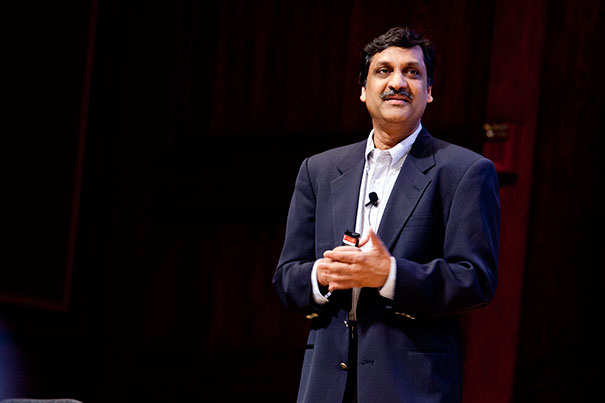
-
A reflective Justice Breyer
Stephen Breyer, associate justice of the U.S. Supreme Court, visited Harvard Law School to celebrate his 20th anniversary on the judicial body and to chat with students and Dean Martha Minow.
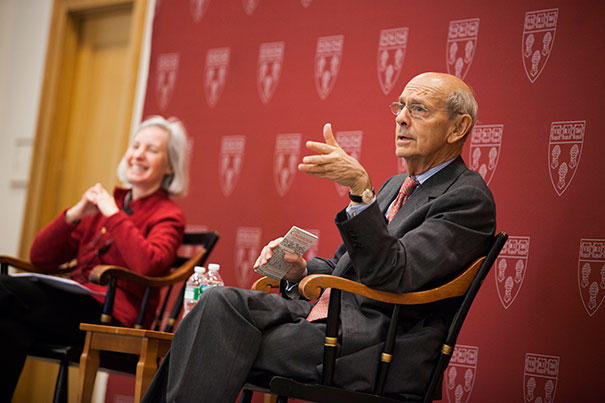
-
The Supreme Court, redux
Scholars from Harvard Law School reviewed some of the critical decisions the U.S. Supreme Court handed down in its spring rulings.
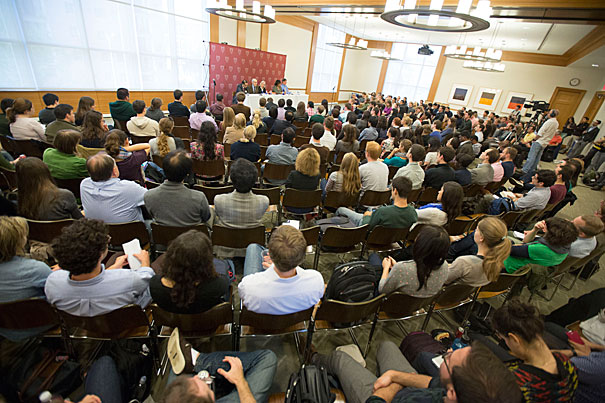
-
Women in the law
Hundreds of women convened at Harvard Law School for a weekend event celebrating 60 years of women at the institution.
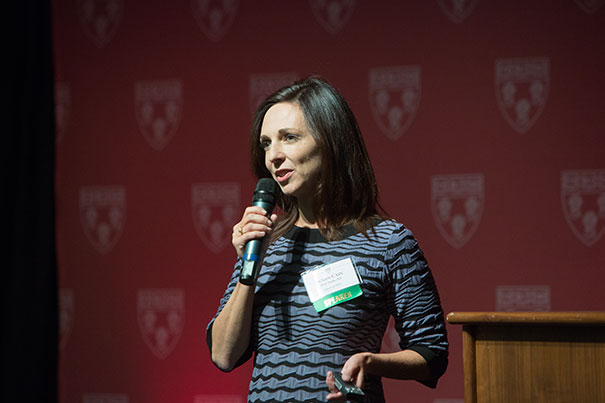
-
A scholar’s brush with religious ire
Reza Aslan, whose book “Zealot: The Life and Times of Jesus of Nazareth” soared on the best-seller lists after an infamous Fox News interview last summer, spoke at Harvard Divinity School, saying that while he is a Muslim, he also is “a follower of Jesus.”
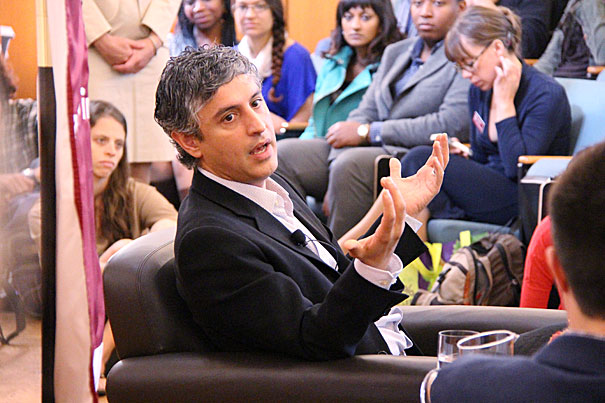
-
Following his passion
Last month, Tim Linden strolled the streets of São Paulo, close to his home and not far from Harvard’s David Rockefeller Center for Latin American Studies’ Brazil office, where he works as an analyst. He talked about his longstanding connection to the center and his work with underserved children.
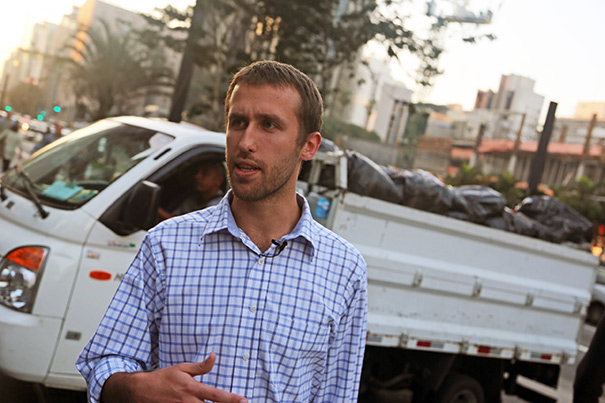
-
Positioned against protectionism
Speaking at Harvard, a top European Union official rejected a return to past protectionist trade policies to shelter struggling European companies during difficult economic times, calling instead for a more open global economy.
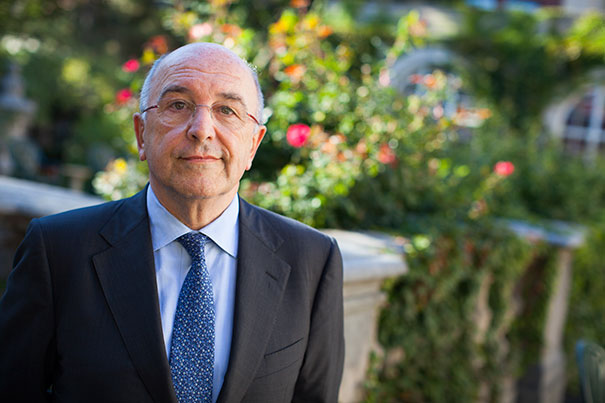
-
Weissmans offer ‘a life-changing experience’
For Paul Weissman ’52 and his wife, Harriet, the Weissman International Internship Program has been an incredibly rewarding experience, one that connects them with new students every year.
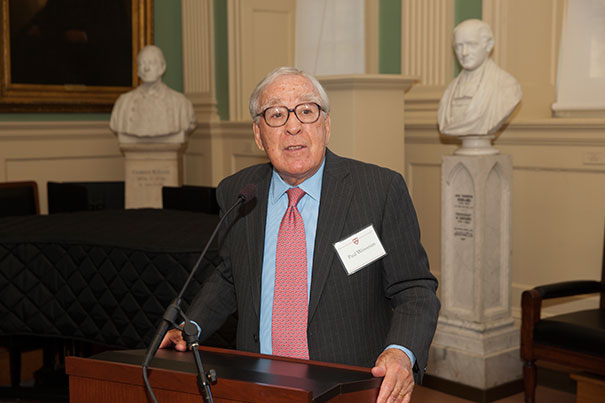
-
Windows on the world
On Thursday, alumni, students, faculty, and staff honored Paul and Harriet Weissman for supporting the international program, named after them, that sends College students oversees to work and experience life.
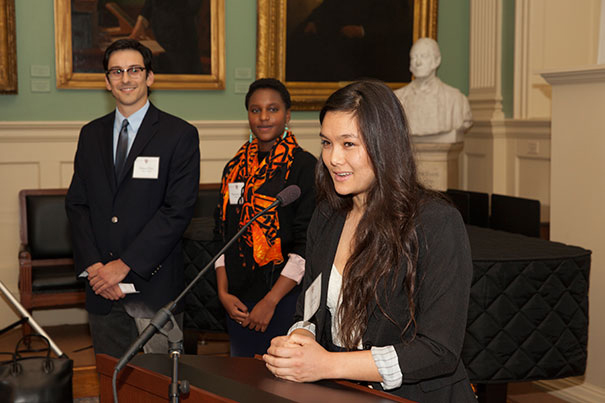
-
Citizen of the world
In recent years, Harvard has been strengthening its presence around the world, supporting international research, offering study-abroad opportunities, and opening offices in India, China, Mexico, Brazil, and other countries.
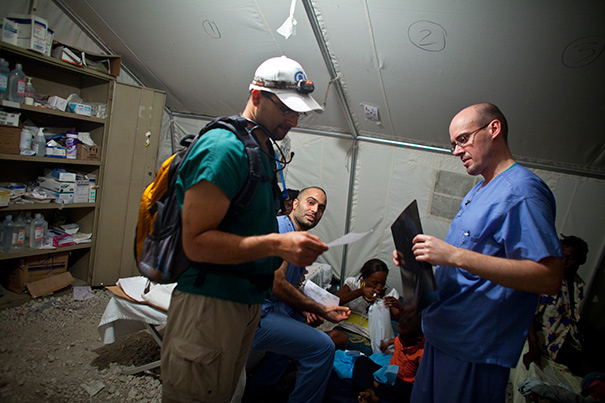
-
Move over, Gutenberg
After months of construction, a “video capture studio” is near completion at Widener Library as part of Harvard’s commitment to exploring, innovating, experimenting, and leading change in how faculty members teach and students learn.

-
Killings in Nairobi hit home
Elif Yavuz, a recent graduate of the Harvard School of Public Health, was among dozens of people killed when the Somalia-based Shabab militant group took over a mall in Kenya’s capital, Nairobi.
-
A more inclusive church?
Gazette reporter Colleen Walsh spoke with the Harvard Divinity School’s Francis X. Clooney, the Parkman Professor of Divinity, professor of comparative theology, and director of the Center for the Study of World Religions, about some of the meaning behind the pope’s recent rhetoric.
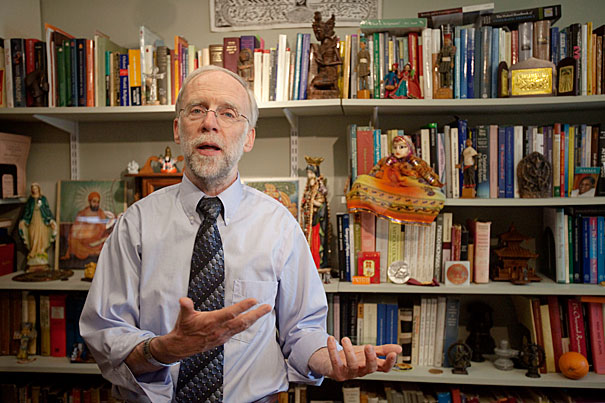
-
Cooperating in educating
The Harvard Campaign will help support growing advancements in interdisciplinary collaboration and integrated knowledge across the University.
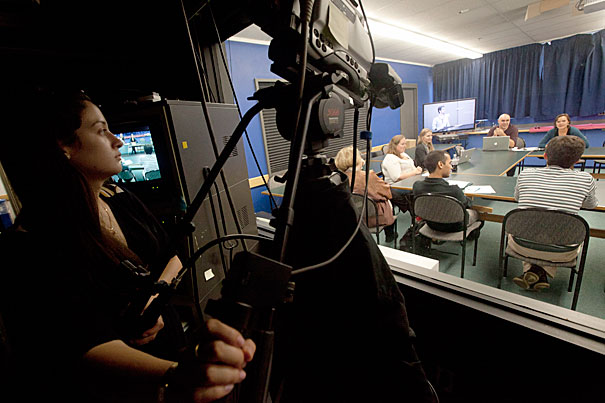
-
Understanding India’s rape crisis
In a question-and-answer session, Jacqueline Bhabha talks about the pervasive crime of rape in India and the impact of the death sentences issued last week to four men who were convicted of the 2012 gang rape of a woman on a Delhi bus.
